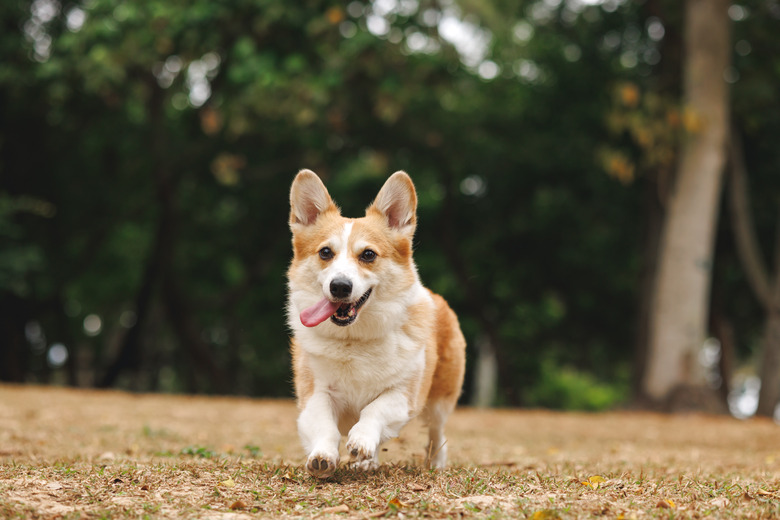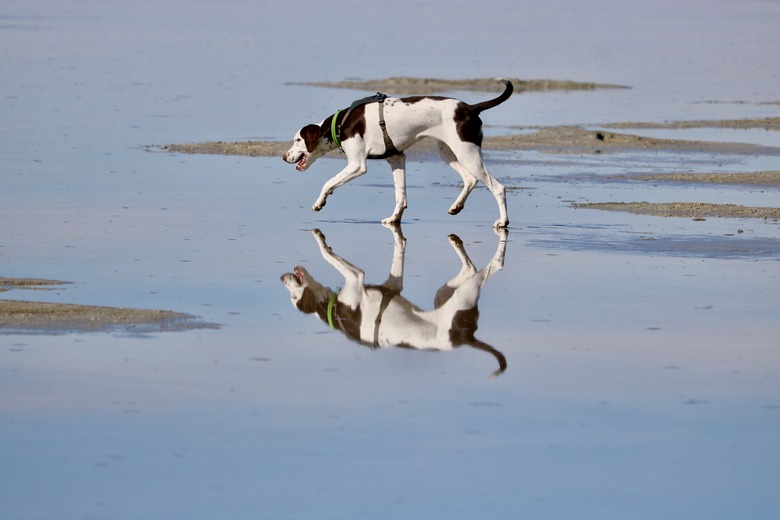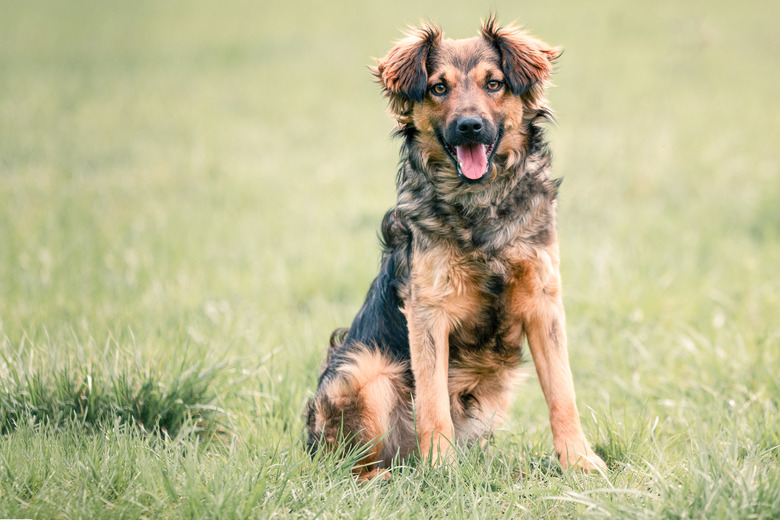Swollen Testicles In Dogs
It is essential that you take your dog to the veterinarian if you notice that his testes are swollen, irritated, or injured in any way. Swollen testicles are an indicator that your dog might be suffering from a serious health problem. Prompt veterinary treatment can make a difference in your dog's final prognosis.
When should I be concerned about my dog's swollen testicles?
When should I be concerned about my dog's swollen testicles?
Your dog cannot tell you that his testicles are swollen and painful, but you will be able to recognize the signs that something is causing your pet discomfort. One obvious clinical sign of a testicular problem is visibly swollen, enlarged testes. You may notice that your dog is persistently licking his testicles or has irritated skin on the testicles or around the scrotum. You may notice lethargy, difficulty walking, or a loss of appetite. He may have a fever, and he could have a lesion or abscess in the scrotal area.
Signs of testicular cancer in dogs
Signs of testicular cancer in dogs
Testicular cancer can affect any male dog, though older dogs tend to be more likely to develop cancer in one or both testicles. Several types of testicular cancer exist, and two-thirds of testicular tumor cases involve malignant growths. Malignant growths are cancerous; they pose a serious health threat to your dog if they are not treated promptly and properly.
Dogs who suffer from cryptorchidism, a condition in which one or both testicles does not descend properly into the scrotum, are more likely to develop testicular tumors than other male dogs. Dogs who are cryptorchid should not be used for breeding; this condition is suspected to be genetic, so these dogs should be neutered.
Specific symptoms of testicular tumors include changes in size. One testicle may appear to be growing or swelling while the other appears to be shrinking or atrophying. Other symptoms are development of mammary glands, expression of milk from mammary glands of a male dog, an atrophied penis, and internal organ damage. Most dogs do not have obvious symptoms.
After a physical exam, if your veterinarian suspects that your dog has testicular cancer, they will perform blood tests, urinalysis, biopsies, and ultrasounds to confirm. Once the diagnosis has been made, your dog will have to undergo surgery to remove the cancer followed by possible chemotherapy and/or radiation therapy to ensure the cancer has been eliminated.
Orchitis and epididymitis
Orchitis and epididymitis
Orchitis occurs when the testicles become inflamed. Epididymitis, another inflammatory condition, occurs when the epididymis — the testicular tube — becomes inflamed. These conditions can be chronic, but they may also be caused by a fungal infection, bacterial infection, viral infection such as distemper, or injury or trauma to the genitalia.
Epididymitis and orchitis are generally treated by neutering. A DVM might prescribe antibiotics if they believe orchitis or epididymitis is rooted in a bacterial infection like Brucella. Female dogs can pick up brucellosis from an infected male dog. Treatment with antibiotics can be an alternative to castration of breeding animals.
Testicular torsion in dogs
Testicular torsion in dogs
Testicular torsion occurs when the spermatic cord becomes twisted. Cryptorchid dogs who develop cancer in the undescended testicle(s) are more likely to develop testicular torsion and neoplasia, which is cancer. However, torsion, which is rare in general, can also happen in a descended testicle, i.e., one that's in its proper place in the scrotum.
The spermatic cord supports the testes from inside the scrotum. When testicular torsion occurs, the blood supply to the testes is cut off. Testicular torsion can lead to significant pain and serious complications, including infection and infertility. This condition is a medical emergency that requires immediate surgery. It is typically corrected by neutering.
What causes a dog's swollen testicles?
What causes a dog's swollen testicles?
A dog's testicles can be significantly damaged due to physical trauma of any kind. Physical trauma can be the result of an accident, a fight between pets, or various other circumstances. If your dog's testicles have been injured, he needs to go to the veterinarian. Early treatment for inflammation of the testes can stop some conditions from developing and help prevent later complications.
What looks like swollen testicles can also be a scrotal hernia. And as noted in the previous sections, cancer; torsion; or bacterial, viral, or fungal infection can cause swelling in this part of a male dog's reproductive system.
What should I do if my dog's testicles are swollen?
What should I do if my dog's testicles are swollen?
Swollen testicles should be treated as an emergency until a veterinarian does a physical examination to determined otherwise. Many testicular problems are cured or prevented by neutering. Neutering is a safe and relatively inexpensive procedure that can prevent testicular health problems from occurring. Talk with your veterinarian about neutering your dog if you believe he is at risk for testicular health problems.
The bottom line
The bottom line
Testicular swelling is often a sign of a serious medical condition, such as epididymitis, orchitis, testicular trauma, torsion, or testicular cancer. Dogs with one or more undescended testicles are more vulnerable to testicular cancer and torsion, though these conditions can occur in any male dog. If you believe your dog is suffering from swollen testicles, take him to the DVM immediately for diagnosis and treatment. Ailments that cause swollen testicles can usually be prevented or resolved with neutering.




